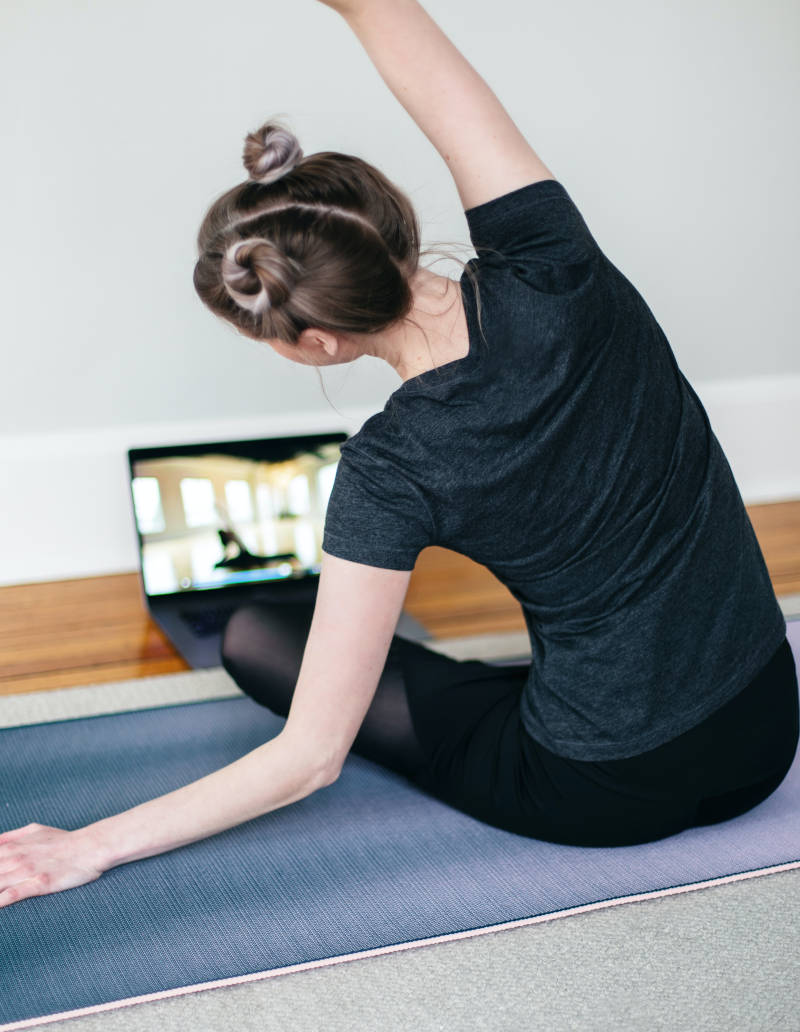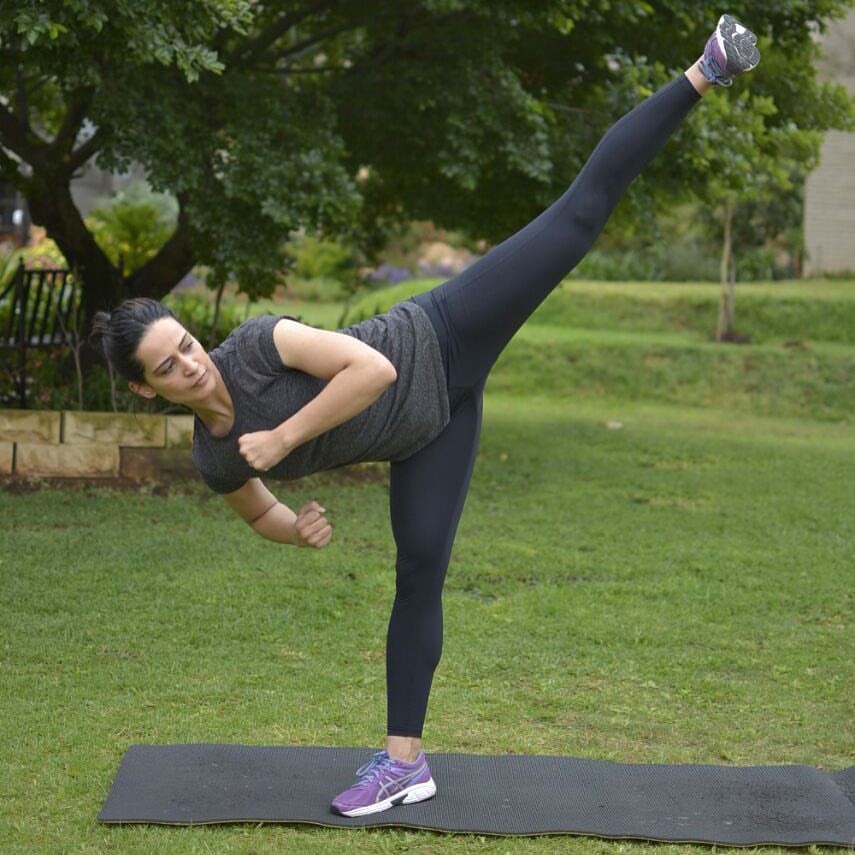Exercise or some sort of movement should be an integral part of everyone’s life. Unfortunately, people focus more on the physical health benefits of exercise but tend to forget there’s more that they can potentially gain from it.
The mental health benefits of exercise are often underrated, but it is very much as important as the physical benefits. There are different types of activities that benefit us physically and mentally.
Let’s look at five exercises that would keep you mentally healthy, along with some tips to get started on exercising.
5 Exercises That Would Keep You Mentally Healthy
Research has proven that exercises improve the quality of life. It has also been proven that exercises are effective for individuals suffering from mental health issues. Specific exercises, including the ones below, are able to really improve mental health in addition to our physical wellbeing. Read on to find out if these exercises are already part of your routine.

1. Running
Running is one of the most straightforward exercises to stay mentally healthy. It’s easy to do and does not need specific skills to learn or practice. All you’ve got to do is find enough space and time to run. Then, you can go to your local park and run for about 30 to 60 minutes, depending on your intensity and pace level.
Running outdoors has been found to work as an antidepressant, especially effective in treating mild to moderate depression. Therefore, avoiding the treadmill and going outdoors to get some fresh air while running is better.
Similarly, walking is also beneficial; you can do it for longer as it is less intense than running.
2. Yoga
Yoga is a form of exercise that integrates the body and mind. Therefore, it’s evident that doing yoga will help improve your mental health. Yoga involves focused breathing, which brings individuals to the present moment they live in. It instigates a feeling of rest and helps us to calm down.
Yoga is well-known to be therapeutic and soothing, which benefits anyone mentally. The chanting in yoga tones the vagus nerve, which runs down the throat. It is an essential regulator of the nervous system. A total of 30 minutes or even 15 minutes of yoga a day can keep you feeling well both mentally and physically.

3. Pilates
When speaking of Pilates, we often think it is an exercise that is highly beneficial for your physical health. Pilates helps maintain core strength and is good for back health. However, Pilates is also known to have significant benefits on mental health as well. Pilates provides excellent relaxation and stress reduction.
The awareness of breath builds self-awareness and increases self-control, which greatly benefits your mental health. It also alleviates anxiety and expands your ability to focus and concentrate in your daily life. Doing Pilates for about 15 to 30 minutes a day is enough for your mental and emotional wellbeing.
4. Aerobics
Low-intensity aerobic activities are some of the best exercises you can do to foster positive thoughts within yourself. Aerobic exercises also improve your alertness and help you focus and concentrate better. Aerobic exercises raise breathing for a specific period, which helps reduce the levels of stress hormones such as cortisol and adrenaline.
Aerobic activities also improve cognitive function and are effective in patients with dementia. It is also a great way to prevent cognitive decline in chemotherapy patients. A total of 20 to 30 minutes of aerobic activities a day, such as swimming, cycling, or dancing, is beneficial for your mental health.

5. Resistance Training
Resistance training such as lifting weights and bodyweight exercises are definite winners when it comes to improving your physical health. But, did you know that this training also helps you stay mentally healthy? Resistance training of low to moderate intensity helps reduce stress and anxiety in many individuals. It also positively impacts the central nervous system, which helps improve mood and get rid of fatigue.
Resistance training also improves cognitive function, which is helpful for patients who have dementia and those who are undergoing chemotherapy. Engage in low to moderate-intensity resistance training for about 30 to 45 minutes daily to experience a vast improvement in your mental health.
Mental Health Benefits Of Exercises
Individuals who exercise often have emotional wellbeing and are less prone to various mental health issues and related illnesses. You don’t have to engage in strenuous activities to gain these mental health benefits.
Doing some form of exercise is better than staying sedentary. The following are some of the benefits of exercising for your mental health.
For Depression
Exercises help treat depression without the side effects of antidepressant medication. For example, a study conducted by the Harvard T.H. Chan School of Public Health has found that walking for an hour or running for 15 minutes daily reduces depression by 26%. Engaging in physical activities also keeps you from relapsing. Exercise promotes various changes in the brain, including reduced inflammation and neural growth that promotes positive feelings.
Exercises also help release endorphins known as the ‘feel good’ hormones. Physical activities also serve as a distraction and give you some time away from negative thoughts that lead to depression.

For Stress
When you’re stressed, your facial and neck muscles become tense. This condition leaves you with severe headaches, back aches and neck pains. Stress also leads to a pounding pulse, tight chest, and muscle cramps. Exercise breaks this cycle of aches and pains that are stress-related. In addition, it releases endorphins that help relax your muscles and relieve tension.
For Anxiety
Exercise relieves stress and tension and is an effective and natural treatment for anxiety. In addition, it boosts mental and physical energy and positively impacts a person’s mood due to the release of endorphins.
Exercises that focus on breathing rhythm enhance the mind’s ability to focus and concentrate. It also keeps your mind away from constant worries and improves your physical wellbeing.
For ADHD
Exercising effectively reduces many ADHD symptoms and improves memory, moods, motivation, and concentration. Being physically active during exercises boosts dopamine levels in the brain and serotonin and norepinephrine; these affect the ability to pay attention and focus.
Therefore, exercise is known to be as effective as various medications used for ADHD, such as Adderall and Ritalin.
For Trauma And PTSD
Trauma and PTSD are characterized by the immobilization stress response, which puts the nervous system in a ‘stuck’ state. During exercise, you focus on your body, which can help the nervous system become ‘unstuck’ and move out of its immobilization state.
Exercises involving both legs and arms are ideal for those with PTSD. These exercises include walking, swimming, running, dancing, and weight training. When exercising, you need to concentrate on the physical movement of muscles and joints.
Other activities, including hiking, rafting, sailing, mountain biking, rock climbing, and skiing, are all good for reducing PTSD symptoms.

Other Mental Health Benefits
Here are some of the other mental health benefits you can experience when you engage in physical activities:
- It helps regulate sleeping patterns.
- It improves self-confidence by fostering self-worth. It makes you feel powerful. Even exercising for a short while gives you a sense of achievement.
- It enhances memory power by releasing endorphins that are responsible for concentrating. Exercise also helps increase memory power by stimulating the growth of brain cells.
- It builds resilience, which can help you face emotional challenges in life.
- It increases your energy levels and keeps you fit and active throughout the day.
Tips On Getting Started With Exercises
If you feel overwhelmed and exhausted simply thinking of exercising, follow the tips below to get started:
- Start slow and progress as you go along. Start with 15 to 20-minute exercises and then increase the timing and/or intensity.
- Either do low-intensity exercises for a long time or high-intensity training for a short time.
- Make exercising a part of your daily routine. Find a time that fits you and will be practical, rather than choosing a time that is inconvenient for you. Be mindful of when your energy levels are at their highest, like in the morning.
- Incorporate a variety of exercises to keep you from getting too bored. You can run on one day and swim on the other, etc. Do activities you enjoy the most.
- Listen to your body and take a break if you feel necessary. For example, stop for a while if you feel a shortness of breath, fatigue, or dizziness.
- Wear comfortable clothes and shoes.
- Give yourself a small treat after achieving a particular milestone in your exercise routine. It will act as a motivation factor.
- Engage in physical activities with a friend to make it more enjoyable.
- Utilize exercises at your workplace, such as taking the stairs instead of the elevator.
How Often Should You Exercise To Be Mentally Healthy
You should engage in exercise or movement three to five times a week. At least 30 minutes of exercising, such as brisk walking or running, is recommended to start. However, this changes according to the activity’s intensity and your exercise goals. Try to do low-intensity activities like walking for an hour three times a week for best results. However, you can limit activities like swimming to about 30 minutes a day, three times a week.
Why Does Exercise Make Us Feel Better?
There are many reasons for exercise to make us feel better.
- It changes the level of chemicals in the brain, including serotonin, stress hormones such as adrenaline and cortisol, and endorphins.
- It reduces skeletal muscle tension, which helps you relax.
- It distracts you from negative thoughts and opens you to new challenges and opportunities.
Warming Up Before Exercises
Warming up before exercising raises your body temperature and increases blood flow to your muscles. Therefore, it helps you perform better when engaging in physical activities and reduces your risk of injury.
To warm up, try doing low-intensity activities like walking or jogging for about 10 minutes. You can also try dynamic stretching to get your body moving before exercises. You can also try drinking a meal replacement shake or vegan protein shake before or after exercising to provide your body with the fuel and energy it needs. Some people prefer to have these shakes after engaging in physical activities, to repair and rebuild muscles and regain energy.
You can choose whichever option according to your preference. Check out shakeslab.com for a list of meal replacement shakes that are healthy and delicious. Meal replacement shakes have fewer calories, making them ideal for weight management. In addition, they are packed with nutrients including protein, fiber, healthy fats, vitamins and minerals, omega 3, and antioxidants.
Choose a meal replacement shake without added sugar and artificial sweeteners, flavors, or preservatives, to reap its health benefits.

Conclusion
Exercises are beneficial for physical wellbeing and play a significant role in mental health. Therefore, engaging in physical activities for at least 30 minutes a day or every few days should be part of everyone’s routine. Variation is key to success, so try engaging in different physical activities regularly.
The 5 exercises above are some of the best activities you can do to improve your mental health. Try them out for yourself to feel a positive change in your life.
FAQs
What Are Some Other Activities To Keep You Mentally Healthy?
Boxing, cycling, dancing, gardening, spin biking, High-Intensity Interval Training (HIIT), and martial arts are other activities that keep you mentally healthy.
What Are Other Ways To Be Mentally Healthy, Apart From Exercises?
Socializing with people, learning new skills, engaging in charity work, reading, meditating, eating healthy and nutritious food, practicing body awareness and relaxing are other ways to stay mentally healthy.
How Can I Be Mentally Sharp In The Morning?
Take a cold shower, drink water, and engage in exercises to be sharp in the morning.



















